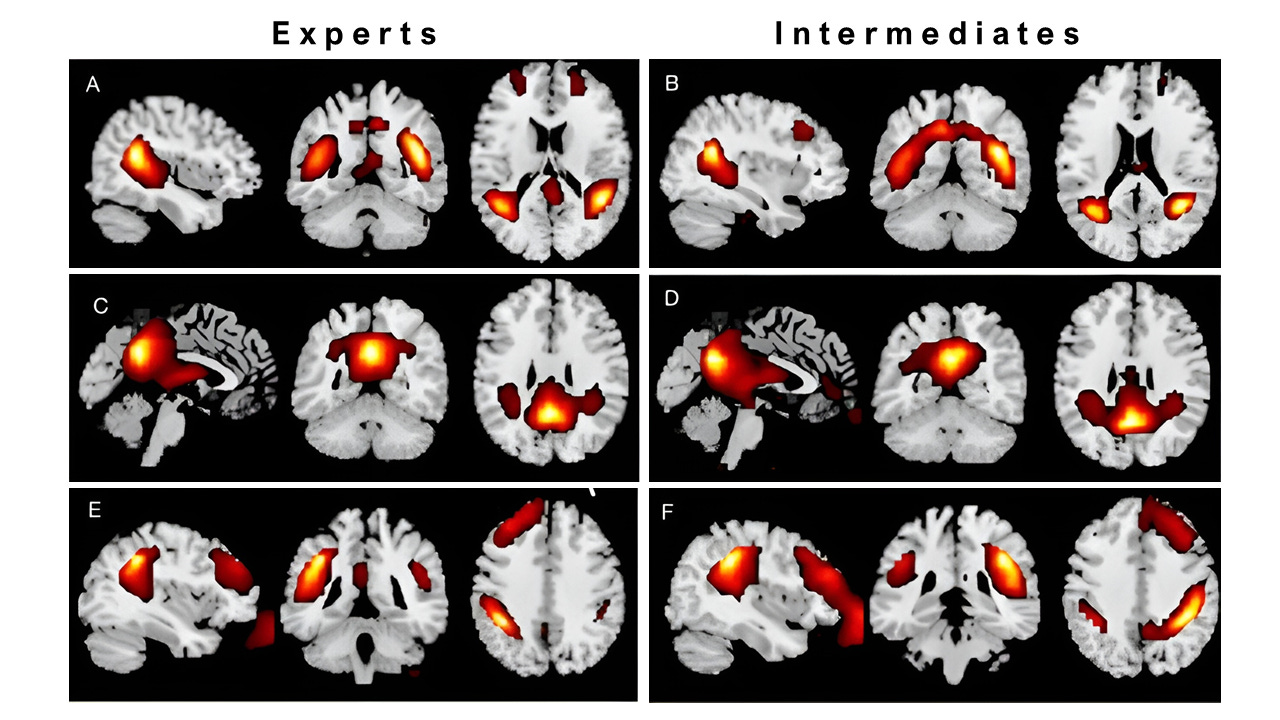Skilled prompters show enhanced neural activity, says study
King Saud University research offers contrast to MIT Media Lab findings

#SaudiArabia #research - Saudi Arabia research university King Saud University has published new neuroscience research showing that expert prompt engineers activate stronger brain networks than intermediate users when interacting with generative artificial intelligence models. Similar in concept to recent MIT Media Lab research that showed passive ChatGPT usage appeared to reduce overall brain activity and cognitive engagement, KSU’s study contrasts with the MIT findings. Based on functional MRI (magnetic resonance imaging) scans of 22 participants, the new study found distinct neural signatures in expert AI users, including increased functional connectivity in the left middle temporal gyrus and left frontal pole regions.
SO WHAT? - Following the release of MIT Media Labs research in June, which showed diminished neural activity during passive GenAI usage, King Saud University’s findings offer another valuable perspective into the future impact of Generative AI usage on neural activity. The four-month study provides the first scientific evidence to confirm that prompt engineering involves complex cognitive abilities and is reflected in distinct brain network patterns. So, the KSU research suggests that skilled AI interaction may offer cognitive benefits rather than the prospect of mental atrophy suggested by passive AI usage studies. No doubt, the new research will prompt more questions and inspire more studies.
Here are some key points about the new KSU research study:
King Saud University has published The Prompting Brain: Neurocognitive Markers of Expertise in Guiding Large Language Models. The new neuroscience research shows that expert prompt engineers activate stronger brain networks than intermediate users when interacting with generative artificial intelligence models.
Based on a similar hypothesis to the recent MIT Media Lab study (that showed passive ChatGPT usage appeared to reduce overall brain activity and cognitive engagement, the findings of KSU’s study contrast with the MIT findings. The new research was conducted between January and May 2025.
The cross-sectional pilot study used functional magnetic resonance imaging (MRI) to compare resting-state brain activity between participants classified as prompt engineering experts, and intermediate prompt engineers. The group was segmented based on a validated Prompt Engineering Literacy Scale (PELS) scoring system.
The Kind Saudi University study found that expert prompters showed enhanced functional connectivity in language processing regions of the brain including the left middle temporal gyrus and executive control areas like the left frontal pole (part of the frontal lobe), alongside altered power-frequency dynamics in key cognitive networks.
The new research contrasts sharply with recent concerning MIT Media Lab findings from 54 volunteers writing essays. In that study, ChatGPT users demonstrated the lowest brain activity levels, underperforming at neural, linguistic, and behavioural measures compared to Google Search and participants that did not use the digital apps.
King Saud University's Prompt Engineering Literacy Scale (PELS) assessed four key dimensions: prompt construction and clarity, advanced prompting techniques, verification and optimization methods, and ethical and cultural sensitivity in AI interaction.
Participants scoring above 37 out of 50 on the literacy scale were classified as experts, with the threshold determined through empirical score distribution, expert consensus, and pilot testing with graduate students and professionals.
The interdisciplinary research aims to bridge cognitive neuroscience with natural language processing challenges, informing design of more intuitive human-AI interfaces and training programmes for effective prompt engineering skills.
Researchers suggest understanding neural basis of human expertise in large language model interaction can guide development of AI systems better aligned with human cognitive workflows and processing patterns.
The King Saudi University research team included: Professor Hend Al-Khalifa; Alanood Alsaleh; Raneem Almansour; Mohamad-Hani Temsah; Layan Abdulrahman Alhuasini; and Ashwag Rafea S Alruwail.
ZOOM OUT - MIT Media Lab's study revealed the alarming potential cognitive consequences of LLM-assisted essay writing through a four-month experiment with 54 participants aged 18-39 from the Boston area. Using electroencephalography to monitor brain activity across 32 regions, researchers found that participants relying solely on their brains exhibited the strongest and most distributed neural networks, whilst LLM users displayed the weakest connectivity patterns. The study's fourth session, where groups switched conditions, showed LLM-dependent users suffered reduced alpha and beta brain connectivity when forced to work independently.
IMO - The differing findings of the two studies appear to show that while AI usage could actually promote stronger neural activity, passive use could weaken it. Further studies will be needed to assess whether such outcomes risk creating a new digital divide between advanced AI users and those with basic needs, Will AI make skilled AI workers smarter, whilst at the same time weakening the cognitive abilities of less skilled AI workers?
[Written and edited with the assistance of AI]
LINKS
Your Brain on ChatGPT - MIT Research Lab paper (MIT Media Lab)

